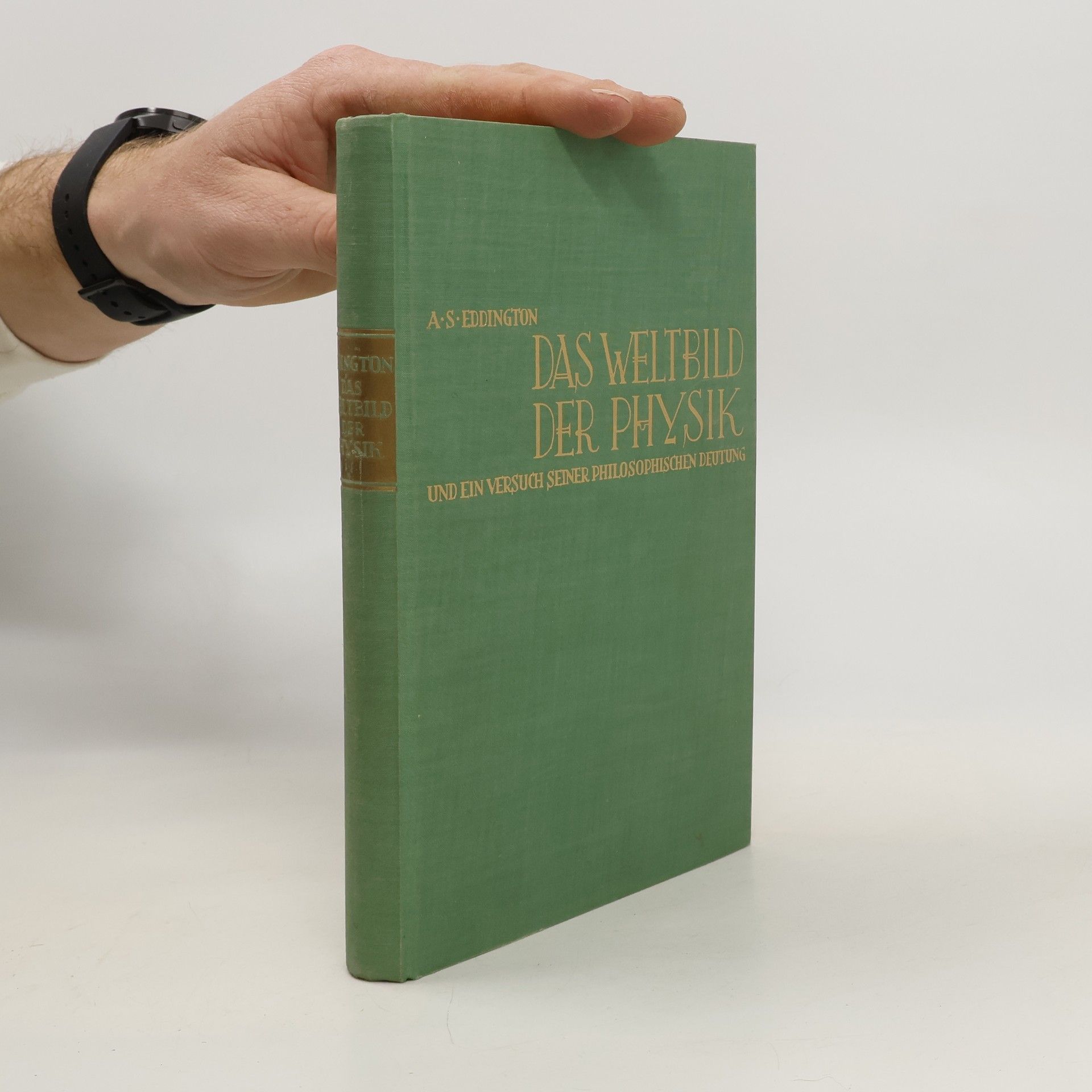Exploring the implications of a positive cosmological constant, this book delves into the phenomenon of cosmic repulsion as presented in the equations of general relativity. Eddington examines how this concept influences our understanding of the universe, offering insights into its structure and behavior. Through a detailed analysis, the work presents a thought-provoking perspective on the nature of cosmology and the underlying principles governing the cosmos.
Arthur Stanley Eddington Livres
Sir Arthur Stanley Eddington était un astrophysicien britannique réputé pour ses travaux sur la Théorie de la Relativité. Après la Première Guerre mondiale, il a joué un rôle essentiel dans la présentation de la théorie de la relativité générale d'Einstein au monde anglophone. Son expédition pour observer l'éclipse solaire de 1919 a fourni l'une des premières confirmations de cette théorie. Eddington est devenu largement reconnu pour ses vulgarisations et interprétations accessibles, rendant les idées scientifiques complexes compréhensibles pour le grand public.






Stellar Movements and the Structure of the Universe
- 282pages
- 10 heures de lecture
The Philosophy of Physical Science
- 192pages
- 7 heures de lecture
This is a new publication of Eddington's book The Philosophy of Physical Science. It contains the following chapters: Scientific Epistemology; Selective Subjectivism; Unobservables; The Scope of Epistemological Method; Epistemology and Relativity Theory; Epistemology and Quantum Theory; Discovery or Manufacture? The Concept of Analysis; The Concept of Structure; The Concept of Existence; The Physical Universe; The Beginnings of Knowledge; The Synthesis of Knowledge.
The Mathematical Theory of Relativity
- 260pages
- 10 heures de lecture
Eddington's The Mathematical Theory of Relativity is arguably the first comprehensive treatise on the mathematical and physical foundations of general relativity. As Prof. Ashtekar explained it in his excellent and informative Foreword "it is comprehensive on three fronts: Eddington systematically introduces the tools of differential geometry, explains the (then known) physical consequences of the theory with admirable clarity, and discusses in detail the conceptual underpinning of general relativity." The new publication of Eddington's book is justified not only by its historical value, but also by the fact that it still provides an original and detailed introduction to the deep physical ideas of general relativity and its mathematical formalism, whose "treatment throughout the monograph is clear, sharp and at the same time pedagogical" (from the Foreword). Eddington's enlightening exposition of general relativity "carries interesting lessons for contemporary researchers in gravitational science at all stages of their career. It is therefore fortunate that the Minkowski Institute Press is making this historic monograph easily available once again" (from the Foreword). NOTE: This book is not a re-publication of the scanned pages of the original publication; the text has been typeset in LaTeX.
The Theory of Relativity and Its Influence on Scientific Thought
- 38pages
- 2 heures de lecture
This reprint series features carefully chosen books that balance contemporary relevance with historical significance. Each volume has been reconstructed with minor enhancements for improved presentation while preserving the original content, ensuring that readers can appreciate both the intellectual value and the historical context of these works.
Dieser Buchtitel ist Teil des Digitalisierungsprojekts Springer Book Archives mit Publikationen, die seit den Anfängen des Verlags von 1842 erschienen sind. Der Verlag stellt mit diesem Archiv Quellen für die historische wie auch die disziplingeschichtliche Forschung zur Verfügung, die jeweils im historischen Kontext betrachtet werden müssen. Dieser Titel erschien in der Zeit vor 1945 und wird daher in seiner zeittypischen politisch-ideologischen Ausrichtung vom Verlag nicht beworben.

